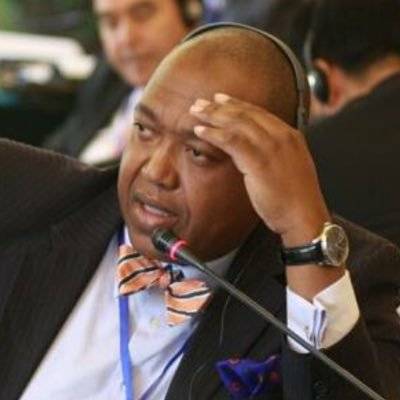The world’s largest oil company, Saudi Aramco, has finally decided against listing its shares in New York, London or Hong Kong, the world’s most lucrative stock exchanges. The company has decided instead in favour of Saudi Arabia’s own Tadawul Stock Exchange in Riyadh. This is an interesting and revealing decision.
When discussions started about Aramco’s initial public offering (IPO) of its shares on the open market, even US President Donald Trump hoped that it would opt for the New York Stock Exchange to do so. According to analysts, Aramco will list between 1 and 2 per cent of its share in the first instance, with the next stage at the Tokyo Stock Exchange in 2020.
The Saudi government hopes that the Aramco IPO will raise about “$100 billion”, and give the general public the opportunity to own a small portion of the world’s most profitable company. The decision to list its shares on the Tadawul Stock Exchange will certainly offer Saudi citizens an opportunity to own shares in Aramco, which has been regarded by many for decades as the cash cow for members of the Saudi royal family. The government in Riyadh has gone so far as to say that if its citizens buy Aramco shares they will be performing an act of patriotism. According to the Financial Times, “Large [Saudi] merchant families — many of whom were ensnared in the 2017 corruption crackdown — are being pressured to invest in an effort to ensure the success of the IPO.” This was a reference to the crackdown in November 2017, when a number of Saudi Princes and businessmen were detained at the Ritz-Carlton Hotel in Riyadh. Many have since been released after “financial agreements” were reached with the government.
The money raised by the IPO is meant to fund the ambitious Saudi 2030 project and help to diversify Saudi Arabia’s economy, which is largely dependent on oil. The IPO was finally announced on Sunday, after facing a number of obstacles.
Aramco will undoubtedly make money for investors, but only for as long as oil is in demand, and that demand is going to fall. Nevertheless, in 2018 the company’s net income was $111 billion, five times more than Exxon and Shell.
READ: Saudi Arabia cuts domestic gasoline prices
However, why was Tadawul Stock Exchange not Aramco’s first choice for its IPO? Why did the company make a U-turn against the world’s biggest stock exchanges as was initially touted? There are various reasons for this. For a start, Aramco has faced challenges with its valuation; investors have questioned claims regarding its worth. This has created trust issues for potential investors, with many arguing that Saudi Aramco could be overvalued. According to David Lennox, resources analyst at Fat Prophets Pty Limited, “The valuation could make all the difference to investors. We’ve also not seen any form of valuation, [although] we’ve seen quite wide numbers from $1 trillion to $2 trillion. We think it’s about $1.4 trillion so you can take your pick.”
Aside from the valuation complications associated with the listing, Saudi Aramco has had to deal with the fallout from the killing of journalist Jamal Khashoggi, which has had a negative impact on the general outlook for Saudi Arabia as an investment destination. Khashoggi was killed inside the Saudi Consulate in Istanbul, Turkey in October last year. Dozens of top business leaders from around the world pulled out of Saudi Arabia’s Future Investment Initiative at the eleventh hour as questions mounted over the Saudi government’s role in the murder. Moreover, the continuing imprisonment of women’s rights activists Samar Badawi, Nasimah Al-Sadah and Loujain Al-Hathloul has not made the situation easier for the Kingdom’s inward investment prospects. When de facto ruler Crown Prince Mohammad Bin Salman attended the UN General Assembly in September, he was forced to answer difficult questions from the media regarding Khashoggi’s death and the ongoing incarceration and torture of Al-Hathloul in particular.

Preparations underway ahead of a commemoration ceremony to be held in front of the Saudi consulate to mark the first anniversary of Saudi journalist Jamal Khashoggi’s murder, in Istanbul, Turkey on 2 October 2019 [Elif Öztürk/Anadolu Agency]
Moreover, the attack by Yemen’s Houthi rebels on the Saudi Aramco Abqaiq petroleum processing facilities and Khurais oil field in September raised serious concerns within the investment community. Last week, Russia’s sovereign fund indicated a lack of appetite to invest in Saudi Aramco. According to Al Jazeera, the fund will not be making a significant investment in the Aramco IPO. Nor will the Norwegian wealth fund invest in Saudi Aramco, its Chief Executive Yngve Slyngstad told journalists.
READ: Yemen war death toll hits 100,000
Notwithstanding the lucrative nature of Aramco, oil is not the commodity of the future. Yes, there is still money to be made in the short and medium terms, but given the way that global energy choices are heading it is difficult to imagine a viable future for oil investments. There is thus an urgency to efforts to disperse oil stocks.
What is interesting is that as Saudi Arabia continues to score own goals and foreign investor confidence dwindles, the government — the royal family — has turned to its own people to invest in Aramco and thus, indirectly, fund the House of Saud’s lavish lifestyle. There are those who are saying that encouraging Saudi citizens to buy Aramco shares is thus more extortion by the government than patriotism on the part of ordinary Saudi Arabians. Such cynicism can, I think, be forgiven on this occasion.
The views expressed in this article belong to the author and do not necessarily reflect the editorial policy of Middle East Monitor.

![Saudi Aramco logo. [Notizie Economiche/Twitter]](https://i0.wp.com/www.middleeastmonitor.com/wp-content/uploads/2017/11/2017_10-25-Saudi-AramcoDM-pv9yX0AAA_qo.jpg?fit=920%2C613&ssl=1)







